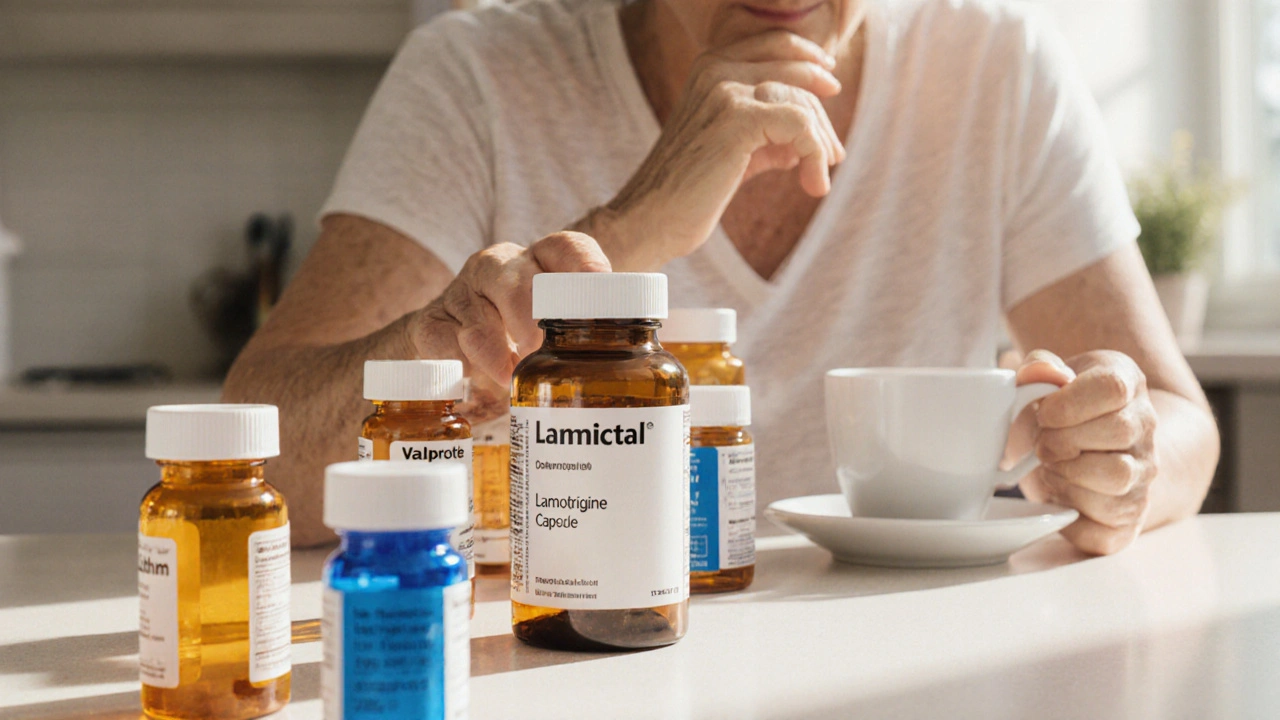Bipolar Medication: Safe Choices, Comparisons & How to Buy
When working with bipolar medication, drugs used to manage the highs and lows of bipolar disorder. Also known as bipolar treatment drugs, it aims to stabilize mood, prevent manic spikes, and reduce depressive troughs. Understanding the landscape of these medicines helps you avoid costly mistakes and choose the right product for your situation.
A core group of mood stabilizers, agents that keep emotional swings in check includes lithium, valproate, and lamotrigine. These drugs require regular blood tests because their therapeutic window is narrow and side‑effects can creep up silently. For example, lithium’s effectiveness hinges on maintaining serum levels between 0.6‑1.2 mmol/L; too low and mania returns, too high and toxicity looms. Valproate, on the other hand, is favored when rapid control of mania is needed, but it carries liver‑function risks that demand routine monitoring. Lamotrigine shines for preventing depressive episodes, yet it must be titrated slowly to dodge rash complications.
Antipsychotics and Adjunct Therapies
Another essential cluster is antipsychotics, medications that target psychotic features and mood instability. Drugs like quetiapine, olanzapine, and risperidone often double as mood stabilizers, especially when patients experience mixed episodes. These agents influence dopamine and serotonin pathways, thereby damping manic energy and soothing anxiety. The trade‑off is weight gain or metabolic shifts, so pairing them with lifestyle advice becomes crucial. Adjunct therapies such as antidepressants are used cautiously; they may lift depressive mood but can also trigger mania if not balanced with a stabilizer.
Choosing the right medication also depends on personal factors: age, kidney function, pregnancy plans, and co‑existing health issues. For instance, women of child‑bearing age might avoid valproate due to birth‑defect alerts, opting for lithium with strict monitoring instead. Older adults often need dose adjustments because renal clearance drops with age. Understanding these nuances lets you ask the right questions at the pharmacy or when ordering online.
Buying bipolar medication safely online follows the same rules as picking a trustworthy pharmacy for any prescription drug. Verify that the seller requires a valid prescription, offers a pharmacist‑review step, and provides clear batch‑number and expiry information. Compare prices, but don’t let a too‑low quote override safety checks—counterfeit pills can ruin treatment and health. Many of our guides walk you through step‑by‑step ordering, price comparison, and red‑flag spotting for popular drugs like generic lithium or aripiprazole.
Below you’ll find a curated set of articles that dive deeper into each medication class, compare costs, outline side‑effect profiles, and teach you how to secure genuine products. Whether you’re starting a new regimen, looking for a cheaper generic, or simply want to understand how these drugs interact, the collection offers practical, up‑to‑date information you can act on right away.

Lamictal (Lamotrigine) vs. Common Alternatives: A Practical Comparison
A detailed, easy‑to‑read comparison of Lamictal (lamotrigine) with common alternatives, covering effectiveness, side effects, dosing, cost, and choosing the right option.
